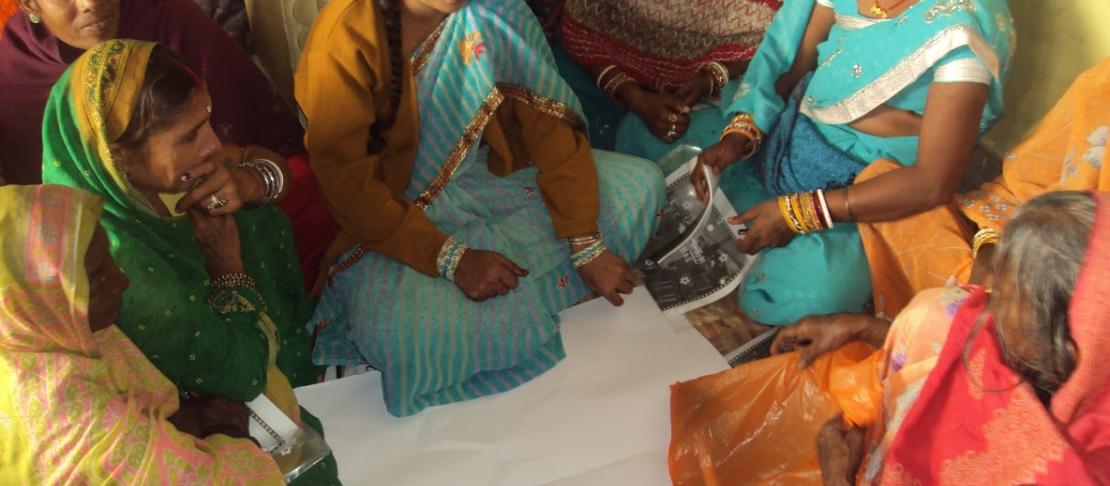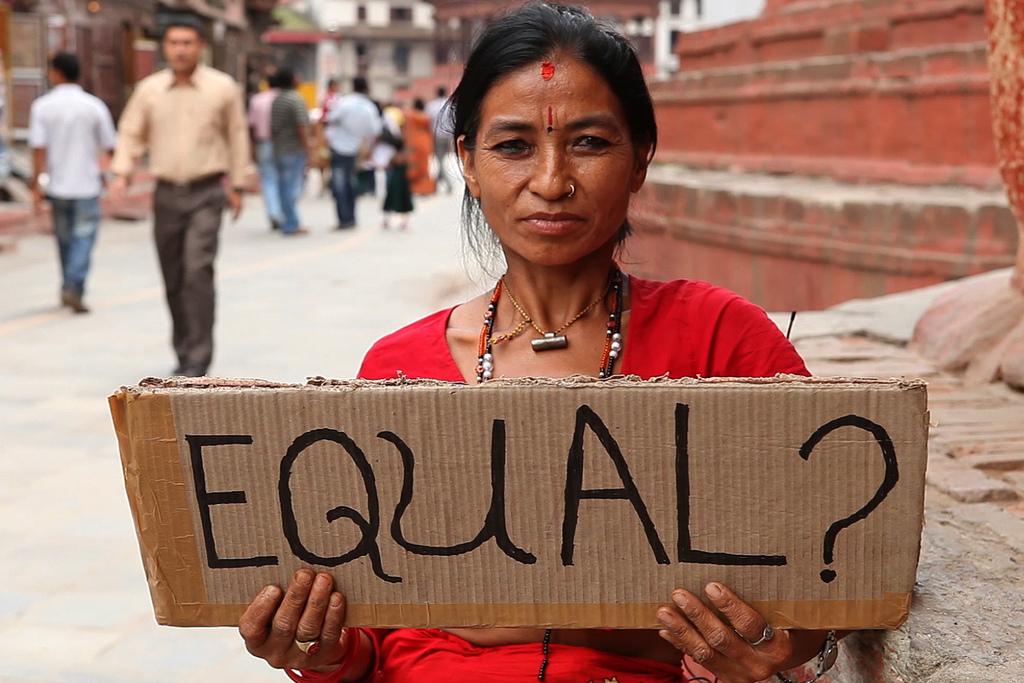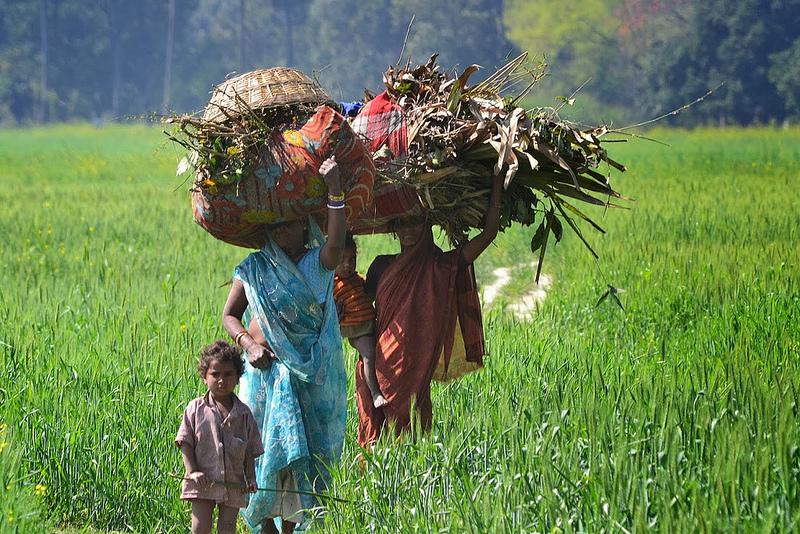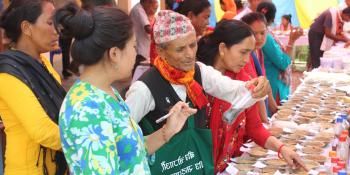Taking the lead: local champions train farmers on climate change and gender issues

Three elected women representatives, who attended the ‘training-of-trainer’ workshop in Bihar, India last year, share their experiences on how they are making climate change and gender a part of their work.
Discussions in Bihar’s panchayats, the local self-governance institutions, had never before included issues on climate change - and definitely not on climate change, agriculture and gender.
But now Ranjita Kumari, an elected representative, is changing the discourse on agriculture in her constituency.
Last year, Ranjita was one of the participants at the ‘training-of-trainers’ workshop organised by our South Asia team, Alternative Futures and the Mahila Samakhya-Bihar.
The workshop aimed to discuss the complex relationship between climate change, gender and food security. Only by articulating the differentiated impacts of climate change on male and female farmers, is it possible to design adaptation strategies that will have an equitable impact on all farmers and the community.

By Training local women leaders to train others on climate change and gender, the hope is that men and women farmers will be equally equipped to tackle climate change. Photo: WorldBank
Sharing the lessons learned on climate change and gender
“I received a lot of information from the training on gender, climate change, agriculture and food security,” says Ranjita. “Prior to this training, I had very little information about the causes and impacts of climate change,” she said. “Now I know the difference between ‘climate’ and ‘weather’. More importantly, I have understood what adaptation techniques are required to fight some of these impacts."
She continued saying that:
"This agricultural season, for instance, we faced droughts in our village; therefore we need now to learn more about drought resilient crops. We have taught women other adaptation techniques such as rain water harvesting and mixed cropping because most farmers here only depend on wheat."
Her views are shared by Rinki Devi from Gaya district in Bihar.
“The training on these issues initiated a lot of discussions on adaptive practices in agriculture and how these can benefit farmers - both men and women. Even with the drought this year, we noticed that farmers who had built small ponds (pokhars/nahars), were able to harvest something despite the drought conditions.”
View Images from the workshop:
Rinki says progress is slow but it is happening. As an example of change, the State-level Panchayat Department has for the first time incorporated environment as one of the issues that elected women representatives will be trained on from this year.
Jashuda Kumari, another trainer from the workshop, works at the Bihar Mahila Samakhya, in Muzaffarpur district in Bihar. She has included issues on climate change and food security into the regular village-level meetings she holds.
“After training women in the local institutions on the intersections of gender, climate change, agriculture and food security in Muzaffarpur and Vaishali districts, I realised that there was a huge demand among women to know more about these issues,” she said.
"Several women from different villages have come to our office or called us up to know more about climate change related issues and specific programmes that support this," she continued.
Linking climate change adaptation to existing laws
Jashuda has been discussing climate change and food security, using the visuals and interactive techniques given in the Gender, Climate Change, Agriculture and Food Security manual published by the CGIAR Research Program on Climate Change, Agriculture and Food Security (CCAFS) South Asia.
Linking discussions to actual laws and interventions is important. Most of the meetings therefore focused on learning more about the Mahatma Gandhi National Rural Employment Guarantee Act and linked climate change resilience to the use of this act.
“We talk about what climate change is, what are the effects of climate change on food security, how women can adapt to situations arising due to climate change and also discuss some of the relevant agriculture programmes and schemes that can be used for adaptation,” said Jashuda.

Climate CHange Adaptation activities are now being linked with existing right-to-work laws.
Photo: Vinaynath REDDY, Vidocs
Forging key partnerships
Establishing links with the agriculture department at the district level has been one of the greatest benefits of the training, said participants. Poonam, head of the district Muzaffarpur Mahila Samakhya office, said: “I would never have invited the Agriculture Technology Management Agency district-level Director if the training had not demanded this.”
The Director came in as a valued resource person for the training:
“Later, we invited him for a field visit where he spoke to women farmers on innovative farming techniques. We also organised a one-day study tour to Rajendra Agriculture University, Pusa Samastipur, in February 2013. About 668 women from six different blocks participated and learnt about scientific and innovative farming techniques and about organic farming,” said Poonam.
One major issue occuring in India right now is that adaptation activities that the Government implements only reach farmers who own land.
Jashuda said:
“After the trainings, women who do not own land in their own name are now aware that they still have the opportunity to benefit from government schemes and adapt to climate change.”
For these women, climate change and erratic weather events are no longer things that just happen to them. Rather, they are slowly gaining the voice and power to steer the discourse on how to tackle these issues, and ensure that adaptation activities empower both men and women farmers in India.
This blogpost was prepared by Aditi Kapoor, Director of Alternative Futures. Edited by Dharini Parthasarathy, Communications Specialist, CCAFS South Asia



